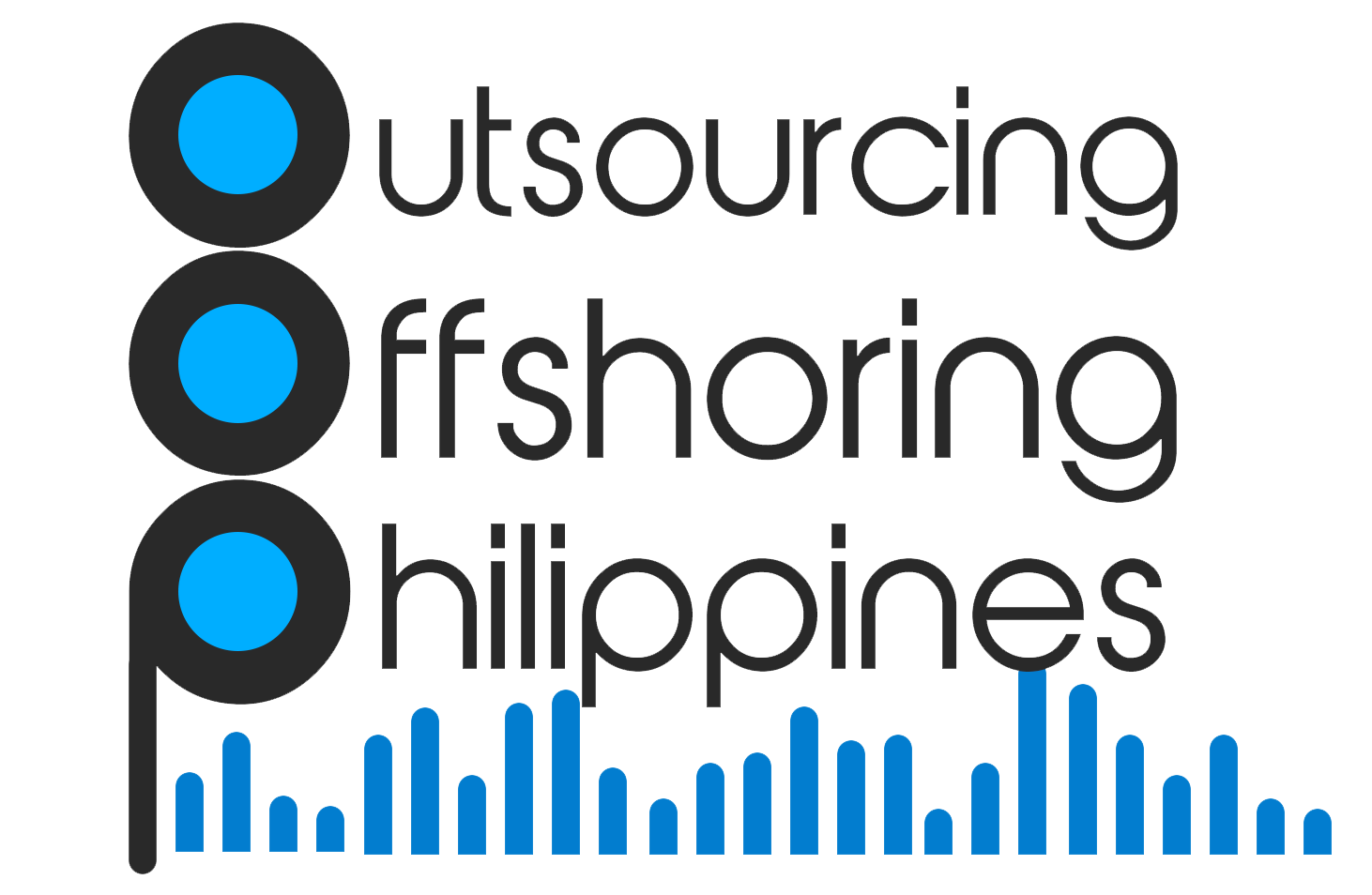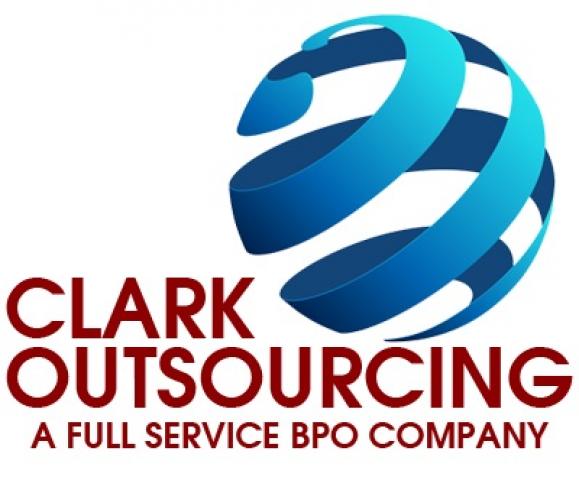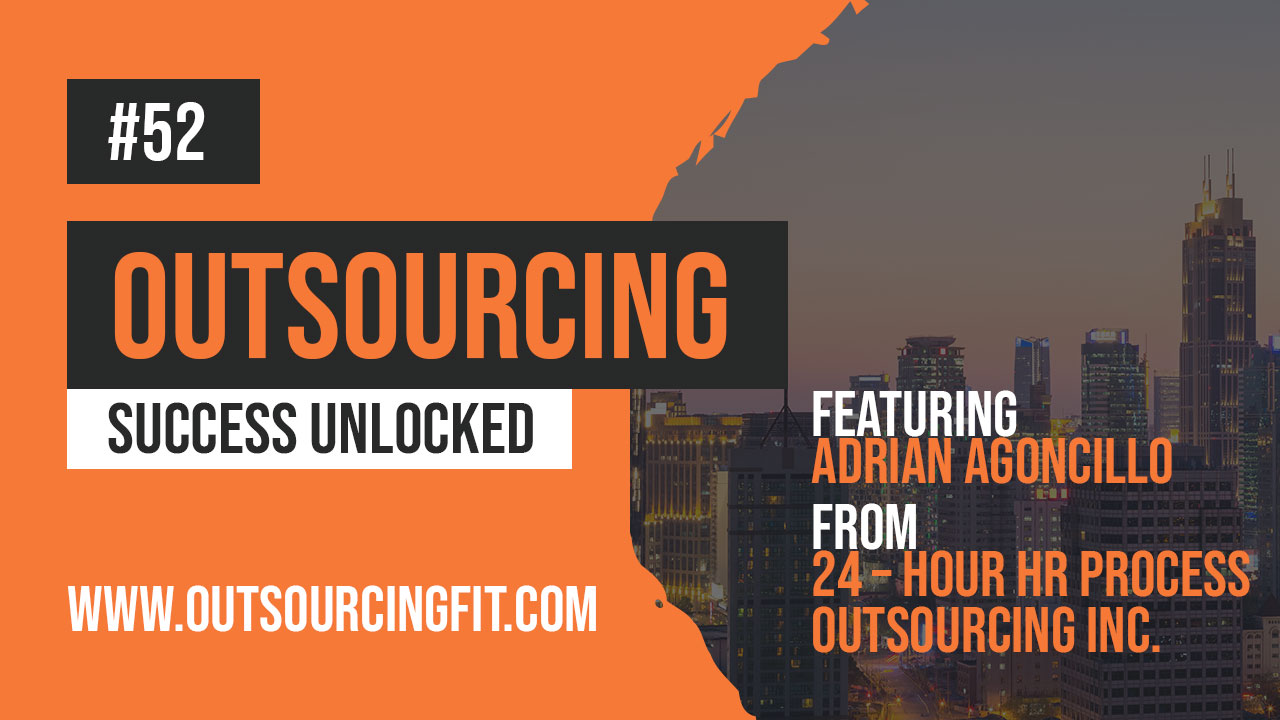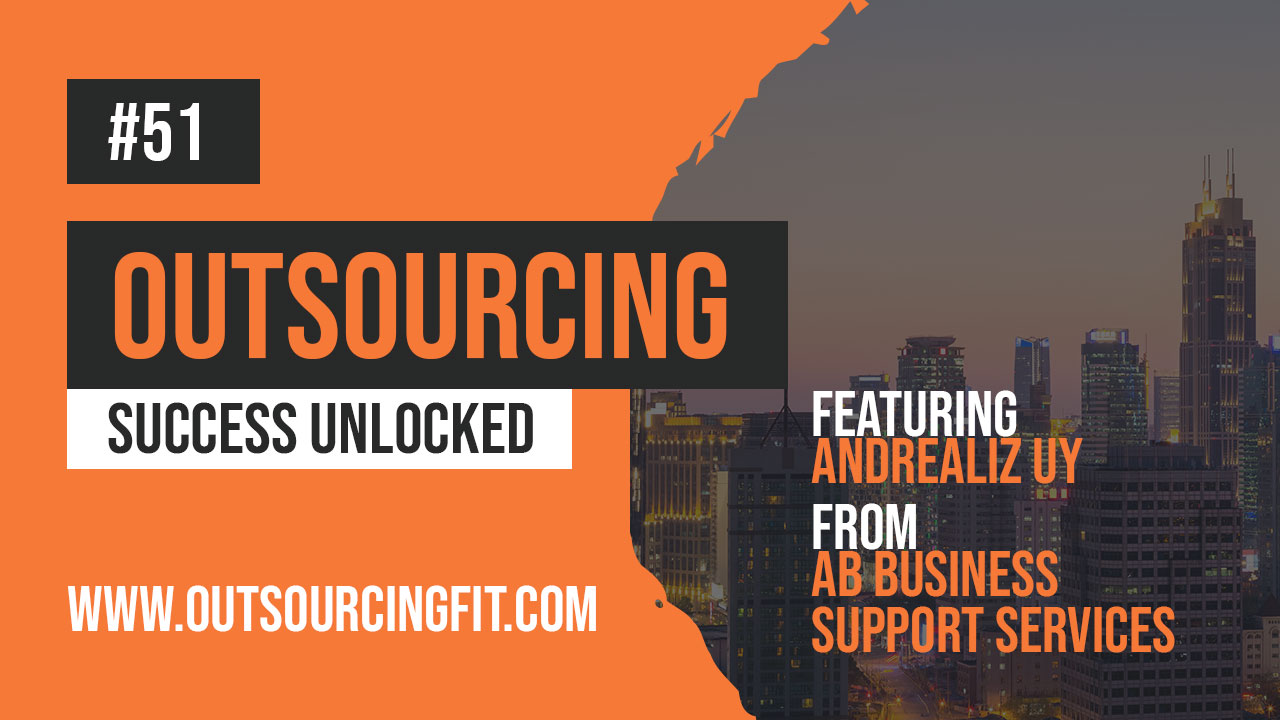
Guest: Russell Meiselman
Presenter: Henry Acosta
We visited Russell Meiselman, CEO of Clark Outsourcing, in their office located in Philexcel Clark Economic Zone. We talked about his company, how he built it from the ground up, the kind of culture he is building with his employees, and the strategy he uses to create great relationships with their clients.
Transcript of the Interview:
Henry Acosta: Hi, I’m Henry Acosta and this is the Outsourcing and Offshoring in the Philippines podcast and today I am with the owner and CEO of Clark Outsourcing and a lot of other outsourcing services for businesses here in Angeles City, Clark. His name is Russell Meiselman and thank you for letting us visit your offices Russell, thank you so much for your time.
Russell Meiselman: Yeah absolutely, it’s good to have you.
Henry: And so can you tell us a little bit more about yourself and how you got started with outsourcing?
Russell: Yeah, I guess I’ll start with myself. I started with outsourcing almost 10 years ago now. It actually started with me being on the other side of the table so I used to outsource processes out of Arizona to India and the Philippines and it essentially turned into me traveling heavy amount of hours and months per year to the Philippines, to India, helping the call centers that I outsourced to, make sure that what they did for us was what we needed. And so it really just turned into me being over here a lot and it turned into me wanting to get the processes right and that was essentially how it started. At some point in time, I’m not sure exactly when, but somewhere around 10 years ago, I just decided I could do it better myself and so the first call center I opened was in Baguio and that was just for a short period of time. I went back to the States, kind of regrouped, make sure everything was set and then I came back and I actually was in Manila for nine months and after that, we found Clark. So Clark is a strategic area for us, simply because it’s not Manila, it’s inhabitable and the talent pool is big enough to where it makes sense, that along with a lot of the business incentives here in Clark like the Freeport portion and the taxes and the foreign investment and the fact that you can actually own ninety-six percent of your business as a foreigner in the Philippines makes a big deal.
Henry: You mentioned that you have experience with outsourcing in other countries like India, so can you tell us the difference on why you ended up choosing the Philippines over those countries?
Russell: A lot of it has to do with culture. Culturally, the Philippines is the closest to Western civilization, meaning first world countries America, Australia, the UK – culturally they’re very close. Not only that, but the accents that Filipinos carry are very minimal in comparison to what you would get with an Indian or a Romanian or South African. You’re able to communicate, especially in America it’s a big pool of foreigners that have moved and live in America so a Filipino accent is somewhat neutral. Sure, it’s not a native speaker, born and raised or something like that, but there’s enough foreigners in America and Australia and the UK to allow a slight accent and not be questioned and Filipinos have that.
Henry: Awesome and can you tell us about Clark Outsourcing, the services that you guys do and what you offer to your clients?
Russell: Sure. I mean we offer really three things incubation, which is like a cold seat. It’s essentially you’re just renting the space. You get the seat, computer, internet access – that’s it. The second, warm seats, we call it remote staffing which is where we manage all of the backend, admin, HR, recruitment, everything on the backend and then our clients will pick their final staff and then they manage the day-to-day.
Henry: Alright. So where do your clients mostly come from? Are they from the US, Australia or which part of the world?
Russell: Well we’re actually pretty diversified. I would say 30% of our staff is US and 30% UK, 30% Australia. We made it a point to ensure that we were just diversified in the sense that we’re not stuck on one economy so our facility runs 24 hours a day, seven days a week.
Henry: Sounds great. And we did some research on you and it seems like you have more than when outsourcing business. Can you tell us about the other outsourcing services that you have and that you guys offer so everyone will know about them?
Russell: Sure. Yeah, I mean the other businesses are essentially so the facility that we’re sitting at now is primarily for the remote staffing. Clients, which are the people that are dealing with their staff on a day-to-day. We do lead generation in another facility, so sales. A lot of the incubation which is the seat leasing, that’s being done in a couple different facilities. So it’s essentially, yeah sure there are different businesses but it’s just one. It’s really one, meaning it’s the same management, it’s the same people that are managing, it just comes down to different areas. We’d like to keep things separated so if you run a hardcore lead generation team, we’re going to put you in a place where it’s cubicles and you have the noise cancelling, etc etc. Here, it’s more of an open workspace, industrial modern, and creative type of workspace so that’s for those type of stuff.
Henry: Can you let us know or just let us in a little bit of info on how you guys usually get your clients?
Russell: Yeah. Well clients of course, people will inquire via email or they’ll call but I would say most of our business is going to their home country and meeting with them. So I’m actually, as I told you in the beginning right, I’m leaving here on the fourth of October, I’m going to be spending a month in the UK to go visit our current clients and also generate new business. So we really go out and just put the boots on the ground and kind of do it manually versus organically on the internet or something like that. So we go out and go and find and meet our clients in person and that’s how we bring them in.
Henry: Can you tell us about the process on how it is with you guys, let’s say I’m a client and I’m getting started with outsourcing. What can I expect from Clark Outsourcing?
Russell: Yeah. So well I’ll talk about against the most popular service which is the remote staffing. Essentially, the way that it works to give you a really simple version is this: we will find the staff, will recruit them, will test them, will screen them, will put them in front of you for a final interview. And if you say “Okay I’m going to hire Alex as my accountant or my engineer or my whatever,” the process will be we’ll manage all the back end. So we’ll manage the onboarding, the payroll, the infrastructure, the IT, the conferencing, I mean everything that you can imagine in dealing with any particular employee – all of that back end, we would deal with. The only thing that you as a client would have to manage would be their tasks or their projects. So if they’re an engineer, you need to assign them the projects for them to run their AutoCAD or whatever it is or if they’re a nurse and they’re your transcriber then you need to make sure that they’re in that next appointment with you for your patient and so on. So you’re only dealing with them on a day to day basis, if anything comes up on the HR side or admin or payroll, we handle everything from there.
Henry: And can you let us in on how do you recruit your employees and how’s your retention so far?
Russell: Well our retention is great. The reason I think it’s better than I would say most is because of the work space. I don’t know if you guys were able to take a tour or not but it’s definitely not a standard call center environment, right. We have a Statue of Liberty, we have shipping containers as offices, full kitchen, we have a dojo and gym with the yoga teacher and jiu-jitsu teacher every day. We provide a really cool, creative work environment so our retention in that sense is really well-established and we don’t lose a lot of staff and it also helps that we hire professional level staff. We’re not the standard call center where it’s customer service, tech support, sales. We employ, like I mentioned earlier, engineers, nurses, autocad operators, financial related accountants or financial planners or those types of things so when they’re at that professional level and they’re in the upper class of salary ranges in the Philippines, they don’t tend to hop jobs nearly as often. So how do we find them? Good question. It’s tough but you go out, we have a pretty big recruitment team and we do everything from online to job fairs. As bad as this may or may not sound, we go out and head hunt and we really find people. If they have a job and we know they’re in Mexico or Manila or somewhere like that and we need them, we will find a way to get them.
Henry: So I can tell us about the kind of culture that you cultivate not just in the workplace but also with your clients and how the engagement works with both sides?
Russell: Yeah, it’s good a question. Well internally to exclude the clients just for this portion, the HR staff does counseling. Most of the admin and HR staff that we hire have psychology background so they talk with staff on a monthly basis, if not more just do counseling, grievance, talk to them see how things are going in etc. As a company as a whole internally, the culture that we really that we really try to emulate is just an open-door creative place to work. We don’t have uniforms, we don’t require the staff to wear this or that, they can wear whatever they feel are comfortable in. We’re pretty flexible in comparison to a lot of other call centers as far as what they do on a day-to-day, how their hourly is managed. If they perform and they want to take an extra 15 minute break to go and have lunch with their buddy down the road, we allow that. And so the culture is just relaxed. It’s not high pressure in the sense that we’re putting people on the spot to do the work. The only thing we really expect is just great performance and a great output. So we have a team of employees, they call themselves the CO League and essentially they are our employee retention team and it’s just random employees, not HR, not admin – these are employees that were elected in a sense to this group and they are the ones that plan the events and every every month, I think or once or twice a month, they have some sort of thing going on and so it’s just again it’s a place that we want people to want to come to work versus have to come to work and so that’s just the biggest thing. And a lot of our clients are on the same page, when they come in, we highly encourage our clients to come and visit. I know a lot of call centers don’t or clients simply don’t come and visit. If we have to, if you’ve been a client with us for let’s say six months and you haven’t visited, I’ll buy your ticket and make you come. It’s just important that you meet your staff in person, have a beer, have dinner, look them in the face and they build a proper relationship in that manner. Great remote staffing works a hundred percent of the time but it just makes it so much easier when you’ve met the person and face to face and you’re able to communicate with them and and build somewhat of a relationship so that’s important.
Henry: Yeah. So it seems that everyone in your offices, they are active and when actually I walked in and I was pretty surprised from the outside. It doesn’t look like much but then when you walk in, you see so many things happening.
Russell: Yeah. I mean the design of the building from the outside, we really kind of wanted to keep it that way. I mean we’re in a business park and with people, there’s no flashy buildings, there’s no crazy statues outside of people’s buildings and everybody does their business quietly and then they want it to be successful when they do that. But what we wanted to create in the inside is a place where not only new staff but existing staff every day, when they walk in, they’re like “Wow, I work here.” So the 25-foot Statue of Liberty, the astroturf, the polished concrete, the industrial, we used pallets for the tables, we didn’t build proper cubicles. I mean this conference table, this is made out of railroad ties and then we built everything from scratch so nothing that’s in this office except for the chairs that we’re sitting in was purchased in the store. Everything was built by hand so that type of feeling that we wanted to give people when they walk in.
Henry: So back then the topic of your clients, so I can tell us about how you guys agree on terms and services and how they get built or how the process goes in that part?
Russell: Sure. When it comes to the service, we have set services so there’s not a whole lot of negotiation happening, there’s not a whole lot of this or that going on, it’s it’s really here are the services we offer, clients pick that, there are things that they can add on to the services if they wanted to but essentially, it’s a set service. So as far as billing goes, I mean it’s monthly, it’s all it’s all done through an automated system and we have the bonds and deposits and those types of things to secure the staff. But other than that, it’s a pretty simple system. Our service, it’s simpler than I would say 9 out of 10 services that are for normal call centers. Like most people tried to conjolute and make things complicated, it’s really simple. ‘What type of staff do you need? Okay great, here’s the cost monthly. Pay a deposit and start.’
Henry: That sounds great. And well since we’re almost out of time, can you leave us a takeaway message for everyone who’s listening who’s interested in outsourcing and talking to you guys here at Clark Outsourcing?
Russell: Yeah. I mean whether you’re interested in talking to us or you’re thinking about just doing outsourcing in general, I think it’s important that you do your research. A lot of people especially in North America and other places, outsourcing is not an easy button. That’s the number one thing I can say. If you think getting an outsourcing team is going to solve all your problems, you’re wrong. Getting an outsourcing team is about developing a team remotely that will in the very short future be beneficial to you at a very very good cost effective price. So hiring an engineer in an office in London, it’s the same and how long it takes them to get up and running is the same as it would if you were to hire them here. The only difference is they cost ten percent of the cost. So that’s it, that’s all it really comes down to. Just don’t go in the call center outsourcing or any sort of sort of outsourcing at all to have an easy button. Do it because you want sustainable, long-term growth.
Henry: Awesome and well thank you so much for letting us visit your offices and it was great having you on the show Russell.
Russell: Thanks again.
Henry: And that was Russell Meiselman, head honcho of Clark Outsourcing. And if you want to know more about Clark Outsourcing, please do visit their website at www.clarkoutsourcing.com and if you want to reach Russell you can email him at [email protected]. And if you like this interview and you’d like to know more about the outsourcing and offshoring industry here in the Philippines and get to know all the BPO firms here, please do visit our website at www.offshoring.com.ph. I am Henry Acosta and thanks so much for listening, this is the Outsourcing and Offshoring Philippines podcast.



